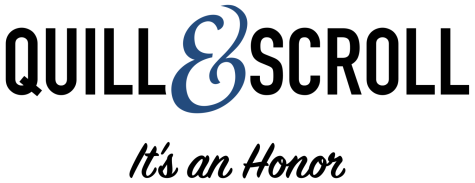THE WEEKLY SCROLL
February 14, 2022
The Lede
Masks off
States, and school districts make the decision to lift mask mandates
As COVID numbers continue to decline, many states and school districts are starting to lift mask mandates for K-12 students. This news has been met with both harsh feedback and great appreciation.
This week, three east coast states — Delaware, New Jersey, and Connecticut — all announced they were no longer requiring students to wear masks in school.
While COVID numbers are declining in most places, they’re still rising in the Southern U.S., and this year’s numbers are still much higher than last year’s because of the Omicron variant. This has led to overflow in hospitals and a national shortage of beds.
Here’s what you can do:
Does your state and/or school district still have a mask mandate? If so, how do students/faculty feel about it? If not, do students still continue to wear a mask?
While wearing a mask is not inherently a political issue, it has become something of a hot button issue in today’s world. While writing, it’s important to check your own political bias and try your best to stay impartial.
The American Press Institute has an article about understanding bias. Read this and use it as a guide to staying impartial in your writing.
New Findings
Research shows students succeed when paired with a teacher of the same racial/ethnic background
According to an article published by The Conversation, researchers Travis J. Bristol from Cal-Berkeley and Tolani Britton from Brown University published a study showing that the race or ethnicity of a teacher affects how often students are suspended.
The study shows that if representation of Black and Latino teachers were doubled, suspension rates would go down 3%.
Among the schools Bristol and Britton studied, Black and Latino students were suspended more often than white students.
Here’s what you can do:
Does your school or school district keep track of suspensions by race and ethnicity? If so, can you create a public records request through using your state’s open records act to get that data?
Do the demographics or your school’s staff — specifically race and ethnicity — reflect the demographics of your student body? How about your community or town? If there’s a distinct difference in them, does the district or school have a plan in place to make it that way so it can avoid the problem displayed in the study above?
Writing about race can be difficult — it’s important to get a clear view of the issues and avoid tokenism in your writing.
American University held a panel with student journalists where they talked about how to write about race. Read through some of their insights to find out how you can become a more informed journalist.
Falling Behind
COVID impacts students’ progress
Multiple educational researchers have found that school closures because of the pandemic have resulted in decreased emotional, social, and educational learning in children.
Unequal access to technology and limited home resources made virtual learning nearly impossible for many low-income students, leading to them falling behind. It’s not just academic — many teenagers are also reporting a decline in their mental health because of decreased social interaction.
Here’s what you can do:
Have students at your school experienced a lack of academic progress or feel like they are falling behind? How have test scores at your school changed over the course of the pandemic? Have counselors seen more students seeking help with psychological issues?
When seeking background information about a story like this, beware of false information online about the pandemic and vaccines.
The Poynter Institute has a webpage dedicated to identifying false information about the Coronavirus.
It’s An Honor
WPM Contest closed
Announcement of winners will come March 25
Quill and Scroll received nearly 2,000 entries in the 2022 Writing, Photo and Multimedia Contest, and we have sent the entires to our judges and they are hard at work picking the winners!
The announcement of school Blue and Gold winners as well as individual winners will be Friday, March 25 on this website and on our Twitter feed.
Benz Scholarship
Applications open for $500 adviser award
Quill and Scroll will award the $500 Lester G. Benz Scholarship to an adviser who undertakes a professional development activity over the summer or in the 2022-23 academic year.
The award can be used to attend a National High School Journalism Conference, to pay for tuition for a university course in a relevant subject area, or for a summer workshop, such as MediaNow, the JEA Summer Advisers Institute or a local summer workshop in your state, to name a few.
Applications are now being accepted. Deadline is April 15, 2022.
The award is named after former Quill and Scroll Executive Director Lester G. Benz.
Last year’s winner was Shari Chumley from Tupelo High School in Tupelo, Mississippi.
Student scholarship applications will open March 1, 2022.
Social Media Awards!
New Q&S charter calls for students and educators using social media in creative ways
 Quill and Scroll charter Class Intercom — an international organization based in Lincoln, Nebraska — is set to open the nomination period for its annual Content Generation Awards, inviting the public to recognize students and educators using social media channels to tell their schools’ stories in creative, collaborative, and meaningful ways.
Quill and Scroll charter Class Intercom — an international organization based in Lincoln, Nebraska — is set to open the nomination period for its annual Content Generation Awards, inviting the public to recognize students and educators using social media channels to tell their schools’ stories in creative, collaborative, and meaningful ways.
The nomination period extends from Feb. 21, 2022 through Friday, March 4, 2022 and will be followed by a public voting period before this year’s Content Generation Award winners are announced at the end of March.
Distributed by Class Intercom (a leading provider of social media management software for schools), the Content Generation Awards recognize students and educators enhancing creativity, critical thinking, communication, storytelling, and collaboration within their schools and communities through social media.
Nominations are open to students and educators at schools of all types, including K-12, secondary, post-secondary, public, private, religious, and parochial schools.
To learn more about the Content Generation Awards and view last year’s winners and runners up, visit https://classintercom.com/the-content-generation-award/.
Last year, the Quill and Scroll Board of Trustees changed its bylaws to allow organizations that monitor and publish student media to earn charters and recognize students whose own school may not have a robust journalism program.
The first corporate charter was granted to Eye on Ivy in Pakistan, an organization that honors students whose work appears in national news publications online or in print.
Student Journalist Impact Award
Has your reporting made a difference in your community? Apply by March 15
The Student Journalist Impact Award recognizes a secondary school student (or a team of students who worked on the same entry) who, through the study and practice of journalism, has made a significant difference in his/her/their own life, the lives of others, the school he/she/they attends and/or the community in which he/she/they resides. (NOTE: This is not a scholarship competition. Do not send transcripts.)
This award is co-sponsored by the Journalism Education Association and the Quill and Scroll International Honorary Society for High School Journalists. Quill and Scroll became a co-sponsor in 2018.
Entry Criteria
- Teachers/advisers may nominate students or students may nominate themselves for this award. (More than one student per entry per school is permissible.)
- The entry must be that of a secondary school student(s) whose teacher/adviser is a JEA member at the time it was published, broadcast or created.
- The entry must be original student work and must have been published within two years preceding the deadline. Date of publication/production must be indicated.
Application Form
- Please fill out this form to nominate an individual or publication for the Impact Award. Nominations are due March 15.
- The entry will include URLs or PDF uploads of the article, series of articles (as it/they appeared in print), or multimedia that made the impact.
- A narrative of at least 250 words explaining why the piece or series was produced and how the entry impacted the individuals, others, the school and/or community. Include, if any, media coverage that the entry generated in the community.
- Three letters, uploaded as PDFs, attesting to the impact of the work from the adviser, a school administrator, professional journalist and/or member of the community (parent, student, resident). The impact of the work, not the author(s), should be the focus.
What’s Viral?
And the Oscar goes to….
2022 Oscar nominations announced on March 27
Nominations for this year’s Academy Awards were announced on Tuesday. The ceremony will take place in Hollywood, California on March 27.
This year’s Oscars are acknowledging films released between March 1 and Dec. 31, 2021.
‘The Power of the Dog,” “Dune,” “Belfast,” and “West Side Story” led the nominations this year.
Here’s what you can do:
Something just for kicks — What do you student body, faculty and staff think of the awards? Whom would they choose as they winners? Have your reviewers written comparison pieces about the top films? What would be their call?
Does your school have an “expert” in filmmaking, such as a journalism teacher or someone in the drama department who could add some cogent analysis of the choices?
How do the themes of the various films differ from each other? What were the filmmakers trying to achieve with their work? Did they succeed? (Hint: Not all goals are so high-minded. Some filmmakers just want audiences to have a good time.)
Something for coverage of other events — Every journalist will likely cover an award presentation or ceremony at least once in their career. These are important because they give your paper an opportunity to highlight the achievements of people in your community.
You want to make sure you mention everyone who is nominated for awards, not just the winners. However, you really only need to get comments from winners, unless there was a popular competitor that your audience would like to hear from.
Make sure to give background on the award, like who is eligible and what it’s for, as well as how often they have held the award ceremony.
If there are a lot of winners, you can be brief with each winner, but if there are only a few the story could be treated as a profile on the winners are you can be more in-depth with them.
The painted streets of Pakistan
Beautiful, elaborately painted trucks cover Pakistan’s roads
In Pakistan, you can see art wherever you go — especially on the streets. The painted trucks you can see are exuberant and over-the-top in the best way possible.
For the drivers and artists, the trucks are more than just trucks. They take care of these trucks and use them to bring joy to the community.
Every driver wants his truck to be the most desirable on the road and because of this, truck painting has been distinctively Pakistani.
Here’s what you can do:
Every community has its own common art form, and arts reporting is important for bringing color and fun to a newspaper.
Arts journalism is a branch of journalism dedicated to the reporting and discussing of all forms of art.
This guide form MN Artists, discusses the anatomy of an arts story. The guide points out the importance of “setting the stage” and getting to know your subject.
Shaun White’s legendary career comes to an end
The halfpipe final will be White’s final hurrah
In his final Olympic games, Shaun White made it to the final in the snowboarding half pipe. In Friday’s finals, however, White crashed on his final run and finished fourth overall.
The three-time gold medalist decided that the 2022 Winter Olympics would be his last. White holds the record for the most X Games medals and Olympic Gold medals in snowboarding.
The LA Times did a great profile on the legend, documenting the near-end of his career as he decided to retire after this year of Olympic events.
Here’s what you can do:
Profiles on iconic members of the community are not only an opportunity to highlight their career but also to get to know them on a personal level.
MasterClass calls a profile a “written portrait of a person,” through a combination of anecdotes, quotes, and photos.
Before writing a profile, you want to make sure you do some background research on the individual. This way you know exactly what questions to ask them and it can help you to understand their stories better.
Having a strong lede, and using the best direct quotes will help to shape your story and make it one that your audience will be hooked on.
Just A Thought
Equity in sports coverage
Quill and Scroll looks into how to uplift women’s sports

Photo by Phillip Goldsberry on Unsplash
With the Super Bowl being this weekend’s hot topic, it got Quill and Scroll thinking about equity in sports reporting.
Every year, everyone and their mother gathers around to watch the biggest football game of the year, but have we ever considered what the women’s sport equivalent is?
Men’s sports tend to outshine women’s sports in the media, and we need to do better.
What sports do you cover at your school and why? Considering how many reporters you have on your team, you might have to prioritize some over the others at times. Why do you choose the ones that you do cover?
Can your editors or your adviser take some time to do a content analysis of your coverage? How many words and how many stories are devoted to girls sports versus boys sports? How many girls are involved in varsity athletics? Boys? It might make an interesting discussion, both inside the newsroom and as a published story, letting your readers know about how you make decisions regarding equity.
As always, the goal is to be fully transparent with your audiences.
The Nieman Center offers seven tips for journalists looking to improve their coverage of women’s sports. These tips include committing to consistent coverage and giving women in sports a louder voice.
Equity in sports is an ongoing effort that every publication needs to be aware of. Your newsroom could benefit from a conversation or workshop surrounding the topic where you can get involved with some of your women’s sports team to be a part of the discussion.
